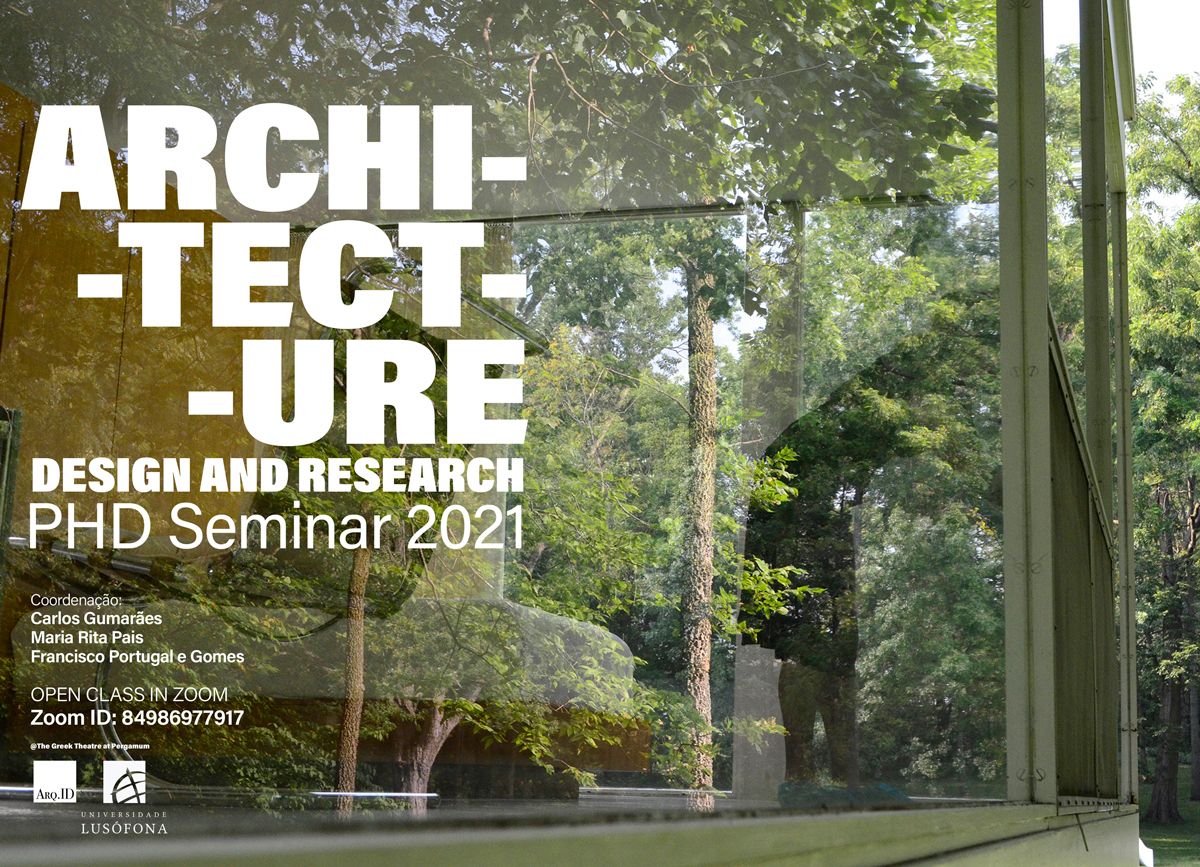Eventos
PhD Seminar: Nora Wendl – “Every History is an Anti-History”

The Architecture Departments of Lusófona University of Lisbon and Oporto are organizing a seminar – Architecture: Design and Research – for the current academic year.
This week:
19th of February 16:30 (GMT)
Nora Wendl comes in to share her class with us: Each Story is an Anti-Story.
You are welcome to watch on Zoom: https://videoconf-colibri.zoom.us/j/84986977917
Every History is an Anti-History
Synopsis
The exhibition Edith Farnsworth: Reconsidered re-presents the Mies van der Rohe-designed Farnsworth House (Plano, Illinois, US, 1951) around the life and desires of the client, Dr. Edith Farnsworth, a Chicago-area physician, ground-breaking nephrologist, and poet. This re-inhabitation of the house with period furniture (and reproductions)—the result of a collaboration with the National Trust, Farnsworth House Director Scott Mehaffey, and Chicago-based architect Rob Kleinschmidt—approximates how the house may have appeared during a very uncertain time in its history: 1951-1954, during which Mies and Farnsworth sued and countersued one another, respectively. At stake was Farnsworth’s very ownership of the house: if Farnsworth lost the case, she would forever be barred from the property.
This seminar will depart from this specific historical moment and its temporary exhibition to focus on the questions of authorship and ownership that have, since the house’s very completion and its earliest reviews in architectural media, divided the narrative of this structure. Problematizing American institutions’ reliance on private patrons, patrilineal lines of wealth, and the inherited narratives that accompany them, I reveal my own frameworks for engaging with institutional opacity as a material reality and subject itself by engaging it in the performative practices of filmmaking, poetry, autobiography, and photography.
This seminar will reveal twenty years of my own practice of working with institutional opacity and omission both within and beyond the site of the archive. For every researcher, an entirely different set of biopolitics conditions not only access to documents, but their ability to give voice to them, to participate in authoring new accounts of history. In this seminar, I argue that these biopolitical conditions must give rise to new modes of authoring and performing architectural history.
Biographical Note
Nora Wendl is Associate Professor of Architecture at the University of New Mexico, where she also serves as Associate Chair for Graduate Studies. Her work, across scales and media, investigates the occlusions of architectural historiography through methods involving image, text, narrative, performance, and exhibition.
Her exhibition work—from films to installations—has been supported by grants and residencies made possible by the Graham Foundation for Advanced Studies in the Fine Arts, Santa Fe Art Institute, and the National Trust for Historic Preservation, among other institutions. Wendl’s exhibitions and interviews with her have also been featured in Southwest Contemporary, Gray, Preservation Magazine, Chicago Tribune, and Architectural Record.
She has published in journals including Architecture and Culture, Forty-Five: A Journal of Outside Research, Journal of Architectural Education, Offramp, On Site: Review, Studies in the History of Gardens and Designed Landscapes, and Thresholds. She is also co-editor and contributor to Contemporary Art about Architecture: A Strange Utility (Ashgate, 2013; Routledge, 2016), which positions artists as co-producers of architectural history and theory.
Wendl holds B.Arch. and M.Arch. degrees from Iowa State University, where she was also the Pearl Hogrefe Fellow in Creative Writing (2004-2005). She has taught architecture studio, theory, and writing courses at universities across the United States since 2008.


